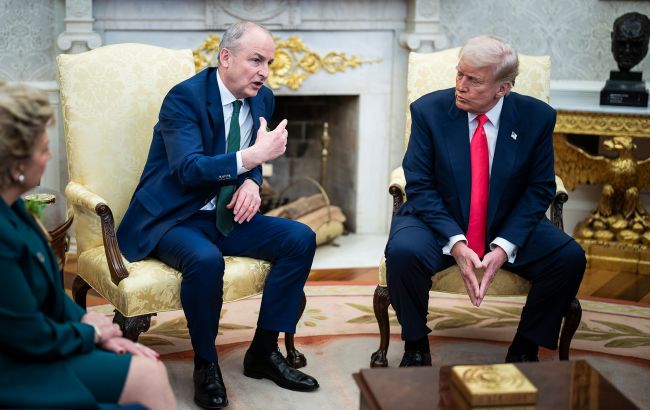Trump’s EU tariffs threat puts 80,000 Irish jobs at risk amid US tax row
 President Trump meets Irish PM Micheál Martin at White House (Photo: Getty Images)
President Trump meets Irish PM Micheál Martin at White House (Photo: Getty Images)
Ireland may lose tens of thousands of jobs if Donald Trump escalates a trade war with the EU, the Irish government has warned in response to fresh US accusations of tax abuses, reports The Guardian.
Irish Finance Minister Paschal Donohoe told RTÉ that under the worst-case scenario, "it is very possible that between 50,000 and 80,000 jobs that would have been created or kept within the economy won’t be."
This figure represents nearly half of the jobs in Ireland’s multinational sector, which Trump is reportedly targeting as part of his wider strategy to bring back jobs and tax revenue to the US.
During a recent Oval Office meeting with Ireland’s taoiseach, Trump singled out US pharmaceutical giants such as Pfizer and Eli Lilly, which operate in Ireland. Although closing such facilities would be complex and costly, changes in US tax laws could significantly disrupt Ireland’s life sciences sector.
Government defends tax policy amid US criticism
Tensions escalated after US commerce secretary Howard Lutnick accused Ireland of running a "tax scam," claiming on the All-In podcast that “Ireland is my favourite. The country of Ireland last year had a $60bn budget surplus."
Irish Enterprise Minister Peter Burke dismissed the comments as incorrect, noting that "we absolutely have no tax scams in this country. We’re very clear in terms of transparency."
Burke also highlighted Ireland’s role in pushing OECD-led reforms that raised the corporate tax rate from 12.5% to 15%. In reality, Ireland’s 2024 budget surplus was €25bn, including a €14bn one-off Apple tax windfall. Official figures also showed a €93bn trade deficit with the US when both goods and services are considered.
As Trump eyes April 2 as "liberation day" for imposing new EU tariffs, Ireland braces for impact across multiple sectors – from tech and pharma to its €800m alcohol exports, particularly Irish whiskey.
The looming trade war could shrink Ireland’s economy by up to 3.7%, according to the Economic and Social Research Institute.

